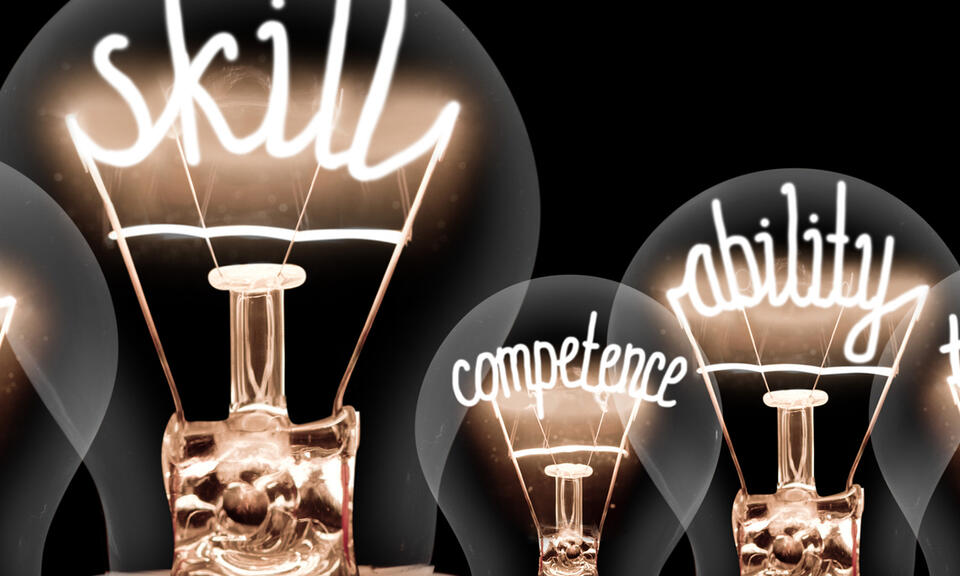
Published
Blog type

Written by Andrea Kerwat (MSc Innovation Entrepreneurship & Management 2019) Consultant in Business Design and Branding at Moving Brands.
Arguably, no one could have predicted that 2020 would turn out to be such an eventful year... Yes, I know it's only July. Being a recent graduate in the wake of global health, societal and economic crises is both a daunting and exciting experience. Every day, we are uncovering new information about how we can better prepare ourselves for what's coming. However, significant questions remain about the future.
How might we better collaborate when we are not together physically? How might we improve ourselves so that we can improve the world around us? In this post, I will share with you two valuable lessons from my time at Imperial College Business School that stuck with me during these times.
Treat everything like an experiment.
Being removed from the office means fewer distractions and more time to focus on our work. As we grow more accustomed to isolation, it can be easy and even tempting to behave in a similar way when it comes to our work, may that be a startup idea, a work project or a job application. Keeping our work locked away and hidden from the world increases the risk of spending time, energy and money perfecting things that might not be feasible, viable or desirable. Meticulous planning, of course, is beneficial and should always be in a strategist's toolbox. But if there is one thing that this crisis taught us is that even the best plans are subject to failure and change.
Throughout my time at Imperial, I understood the value of exposing my work to the world early and often. Treating my projects like experiments fundamentally changed the way I approached them. Experimentation means changing your approach from sequential and linear steps to multiple iterative cycles aimed at testing your assumptions, learning from your findings and improving your work accordingly.
Experimenting is especially valuable when we are all working remotely. Putting our work out in the open makes it easier for us to collaborate as we can share and receive feedback on an ongoing basis. Sharing your work as early as possible reduces the risk of wasting precious resources building something no one wants. Doing it often means that you can test one assumption at a time, avoid entangling them with one another and generate more interpretable findings.
Treating your deliverable like a prototype will fundamentally change your view of failure. If failure is only introduced at the end of a project, we waste its potential as a tool for improvement all the while making it something to be avoided at all costs. Your prototype' should not be perfect, but it should communicate just enough for your target audience to provide you with the feedback you need to progress to the next step.
In this uncertain and hyper-connected world, fast often beats perfect.
EQ as well as IQ
Working from home means less time commuting and more time for ourselves. Many people have seen this as an opportunity to dedicate more time to self-improvement, may that be more exercising, picking up a new language or learning a new craft. If you have opened your LinkedIn feed recently, you might have noticed that many people are now focusing on becoming better professionals through courses and certifications. I cannot speak on behalf of everyone, but I certainly at times have rushed to the conclusion that these courses were the best and most efficient way for me to improve as a professional.
Empathising with your target audiences not only means innovating more effectively but also solving significant societal and environmental problems.
Of course, this is a great way to upskill, but it is not the only avenue to explore. My time at Imperial showed me the importance of training my emotional intelligence like I would a muscle. Now more than ever, we should be thinking about becoming more aware of our limitations, more empathetic towards others and more motivated to act. This is even more important as the boundaries between our professional and personal lives become increasingly thin.
A learning that I will always carry with me is that to become better professionals we need to become better people and vice versa. Empathising with your target audiences not only means innovating more effectively but also solving significant societal and environmental problems. Being more self-aware surfaces the strengths we can leverage to have an impact professionally all the while exposing the implicit biases and limitations we should address to become better people. Understanding what makes us truly motivated not only helps us improve performance but also allows us to be more honest with ourselves about what makes us truly fulfilled. In a world where we have more time to dedicate to ourselves, let's not only pick up that new language but also use it to ask someone about how they feel. In a world where we have to ask ourselves uncomfortable questions, let's not only ask ourselves what this crisis mean for us but also what they mean for others.
In a world where the boundaries between our work-selves and personal-selves are disappearing, we cannot become better professionals without becoming better human beings.
